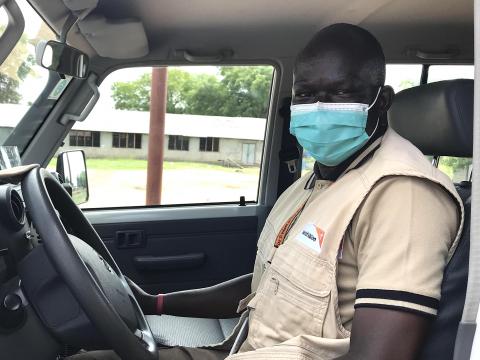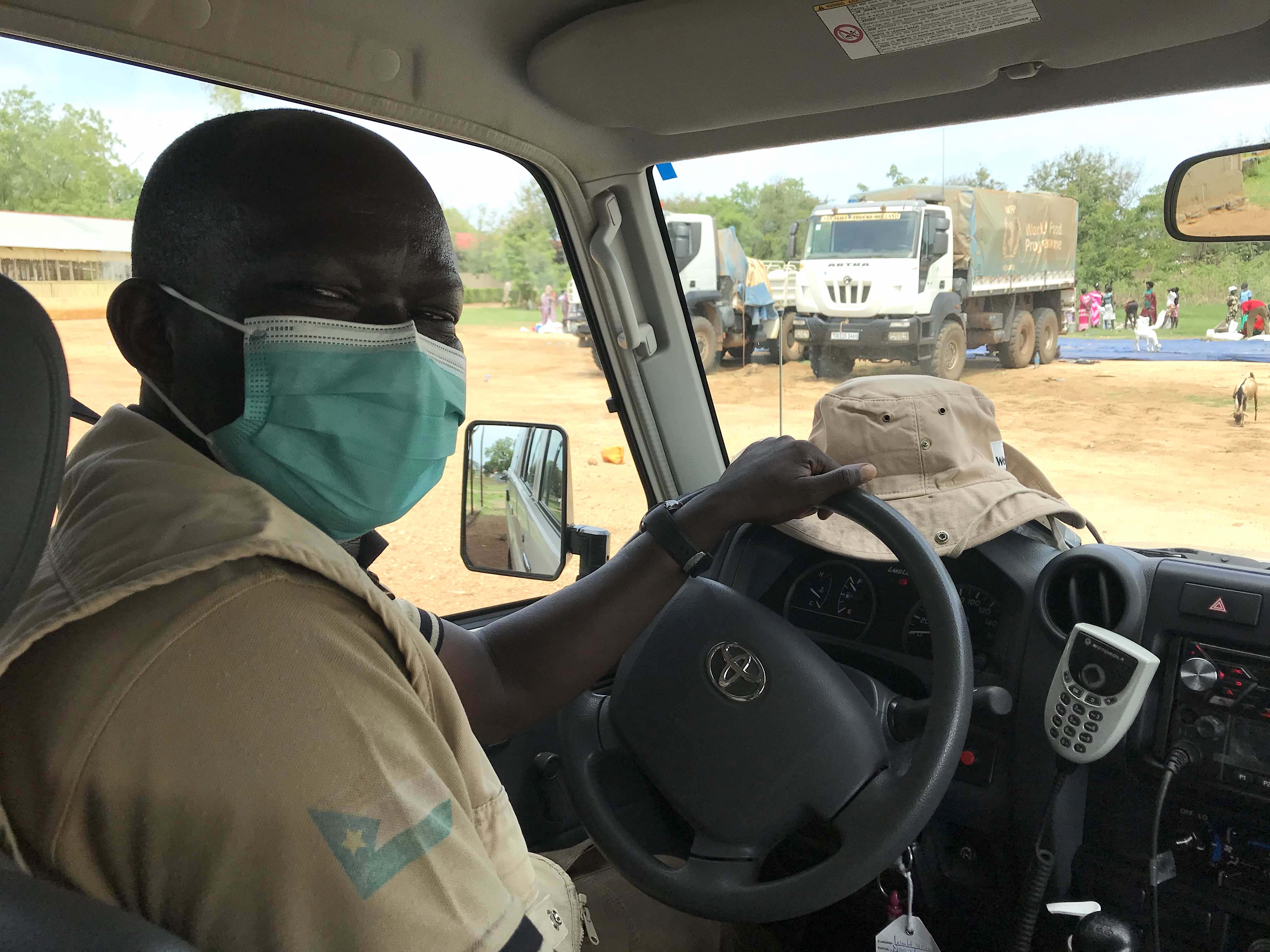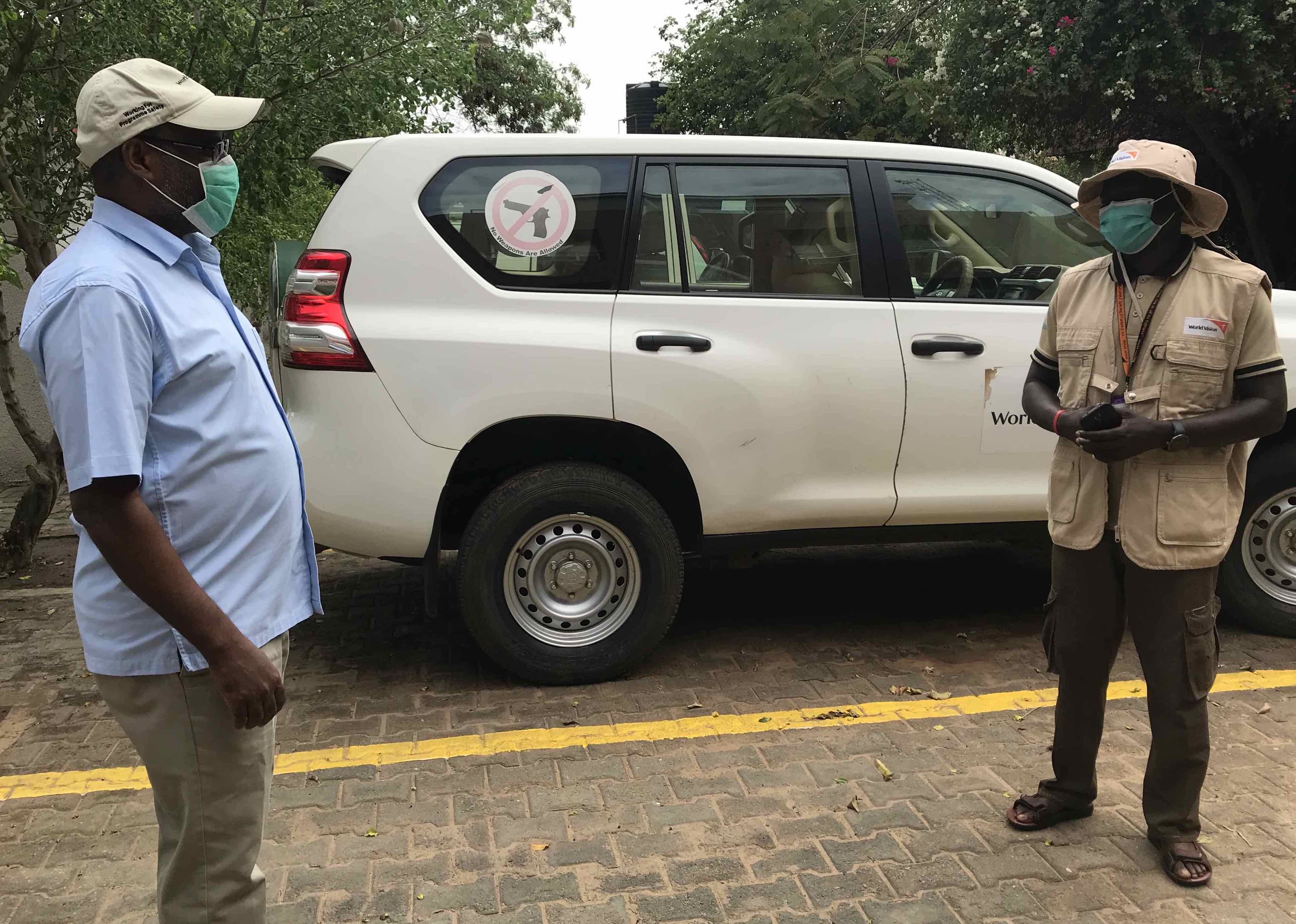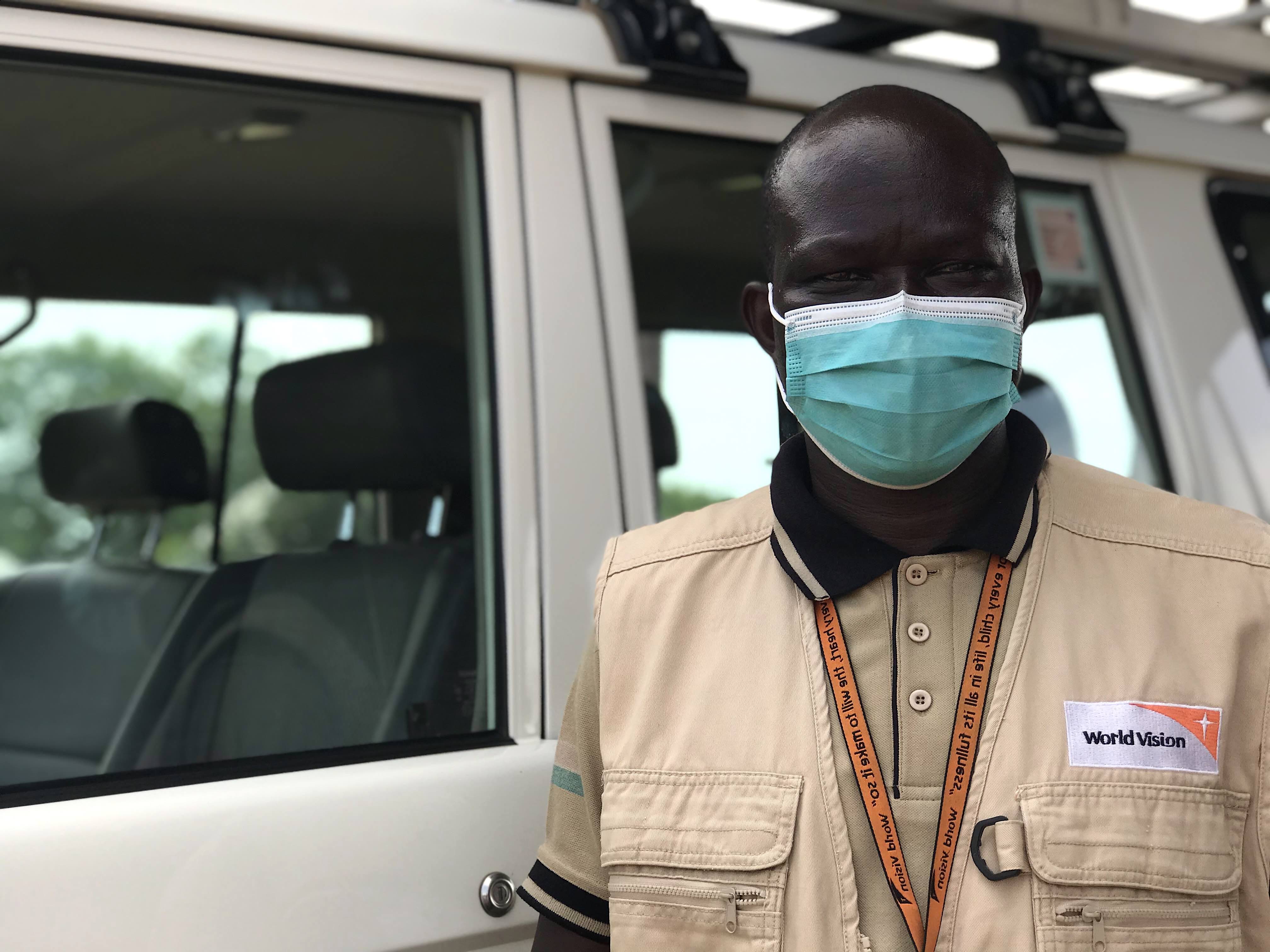A first in a driver’s life: Transporting people and life-saving essentials amid threats of #COVID19

The roads in Juba, especially in the narrow streets often crowded with people and vendors, are best dealt with by seasoned drivers who know them well as the back of their hands. They can even just shrug a shoulder and smile at the chaos, choosing to focus on the wheel.
On his 10th year driving for World Vision in South Sudan, John Peter Lomoro, 45, found himself confronted with a new and invisible challenge and a different way of ferrying his passengers to work destinations – in a mask.
An added part to his responsibility is making sure they sanitize their hands, as soon as getting into the car, aside from reminding them to fasten their seatbelts before taking off. He was used to a lot of challenges having grown in conflict-ridden South Sudan. This one is different.

“My job helps ensure the food assistance team can deliver theirs on time. This is a difficult time when people can easily be stressed because of stress and fears. I try to be patient and calm because it is important in teamwork”, Peter explains.
His family left South Sudan for Uganda when the fighting became intense in his village in 1991. “I lost my mother to the conflict. She got sick and it was not possible to bring her to the hospital for treatment. I left with some relatives and settled as refugees in Kenya then later in Uganda”, he shares.
I want to appeal to world leaders that when the vaccine is finally ready, they should not forget countries like South Sudan. They should not forget us. I hope they keep in mind to make it available globally.
“One good trait of the South Sudanese people is that if you get separated from your relatives, anyone will just take you in and take care of you. It happened to me and that was how I survived the camps I have been into”, Peter recalls.
This kind of attitude regarding everyone as a part of the family gives him the hope that in this time of the pandemic, the people of South Sudan will help each other to overcome the health crisis.

Through sheer persistence and support from people and family, he was able to study in a vocational school and became a car mechanic. He eventually found his way working in World Vision.
“I want to appeal to world leaders that when the vaccine is finally ready, they should not forget countries like South Sudan. They should not forget us. I hope they keep in mind to make it available globally”, appeals Peter.
Now a father of six, Peter’s four children have to stay behind in Uganda to study. Two are with them in South Sudan. He adds, “I remind my family, especially my children, never to take this virus for granted and to share the information with their friends and neighbors. As a World Vision staff, I have to do my share of campaigning to people around me.”
He listened and read a lot about the pandemic and understood how dangerous it is when it infects people. “At work and at home, we cannot afford to be negligent. We have to take it seriously and help protect others”, he says.

Story by Cecil Laguardia, Communications Manager I Photos by Scovia Faida Charles Duku, Commun